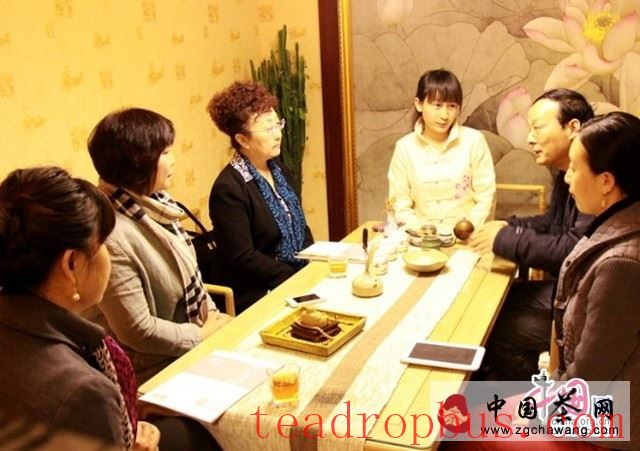Schumann: General Planner of China's Top Ten Famous Teas, Standing Director of the International Tea culture Research Association, Special Researcher at the Ningbo East Asia Tea Culture Research Center, Editor-in-Chief of Go for Tea

In many tourist destinations across China, temple sites make up a significant portion. As a result, there are many people who go to divine and burn incense, praying for blessings from Bodhisattvas. I have always adopted a non-participation stance towards such matters. I have seen some people seek divination in temples, and if they receive an uppermost sign, they are overjoyed; if they get a lowest sign, their faces immediately fall, and some even beg the monks in the temple to show them a way to avoid misfortune. We can only pity these people's misfortune and ignorance—why is it necessary to foretell future good or bad fortune? This kind of suffering in spirit is entirely due to a strong desire to avoid harm and seek benefits and a firm belief in the occult.
The occult is something that ordinary people cannot explain clearly. Even Confucius, with his extraordinary wisdom, only took a position of neither confirming nor denying, saying, “The Master did not discuss spirits, prodigies, disorder, or gods,” let alone us common folk. Therefore, I have never engaged in divination or seeking signs to predict good or bad fortune, and I am even opposed to it. The reasoning is simple: If I do not believe in superstition, seeking bad or good fortune is irrelevant to me; if I do believe in such things, seeking bad fortune would leave me anxious, adding unnecessary mental burdens, which is not beneficial. Seeking good fortune would lead one to believe everything will be smooth sailing, resulting in a lax attitude towards life and a lack of striving for improvement. It is better to live a normal life without worries, isn't it?
Regarding this issue, Li Zhiwu in the book Fenshu, in his letter “Reply to Geng Tonglao,” puts it very well:
New and unusual things are found in the ordinary, but the world does not see this, instead seeking new and unusual things outside of the ordinary. How could this be called new and unusual? Take the Fairy of Sichuan as an example. Everyone says she can know past and future events, and they revere her as a deity. But past events are already known, so why wait for someone else to tell you about them? Future events do not need to be known, so why use someone else to tell you about them! Therefore, it is said, “The wise are not confused.”
“Future events do not need to be known,” what good would knowing them do? Unbeknownst to many, both good and bad fortunes are hidden in your current ordinary life and work. Instead of seeking knowledge of future good or bad fortune, it is better to cultivate present ordinariness. Some monks today, I dare not praise. They know that seeking divination goes against the Buddha's intentions (Buddhism is most opposed to superstition, especially Zen Buddhism, which advocates that one's nature is the true mind and does not seek Buddha outside oneself), yet they still use “signs” to guide sentient beings. After pointing and guiding, the path to avoiding misfortune is simply “do more good deeds and form good connections.” Doing good and promoting goodness is fundamentally what Buddhism teaches. In this way, the predictions of future good or bad fortune ultimately return to daily life. The Buddhist doctrine of cause and effect can also explain many connections between mundane things.
To “do more good deeds,” one must first improve their heart before they can act on doing good deeds. If one starts with the intention of “avoiding misfortune” and deliberately does good, then within those good deeds lies a hidden “profit motive,” and the good deeds become tainted. Among the many people who burn incense and worship the Buddha, there are probably not many true believers, and even fewer truly understand the Buddha's original intentions. The Buddha said, “This requires a state of mind and action, not mere verbal recitation. Verbal recitation without action is like an illusion, like a transformation, like dew, like lightning. When words and actions align, the heart and mouth correspond” (The Platform Sutra). How many people can understand this?
Thinking that chanting “Namo Amitabha Buddha” a few more times will change one's heart into a good one may not be particularly effective. Seeking guidance from monks is really because one does not understand the causal relationships between all things. If one does not fundamentally cultivate goodness and integrity, working on being a decent person and focusing on “a straight heart is the path,” then all divination, seeking signs, burning incense, and worshiping the Buddha is in vain—the Buddha himself advocates this.
Confucianism advocates that personal cultivation should start with understanding the nature of things, sincere intent, and right-mindedness. The Yi Zhuan also believes that “families that accumulate good deeds will have abundant blessings, while families that accumulate bad deeds will have abundant misfortunes.” There is a Zen principle in Buddhism, “go for tea,” which advocates that the process of Drinking Tea is the process of contemplating the Buddha, cultivating oneself with the peacefulness of tea, accumulating virtue in the present; and improving oneself with the virtues of frugality, beauty, harmony, and respect found in tea, gaining immediate Zen joy. The Buddhist doctrine of doing good deeds and the Confucian theory arrive at the same destination through different paths! Advocating the practice of “going for tea” as an alternative to seeking divination and praying for blessings from Bodhisattvas, thereby sincerely cultivating a good heart and promoting goodness, would undoubtedly benefit our society. So I say:
Rather than divining or praying, why not go for tea!